Zelenskyy tried to kill NABU. Then it exposed his friend’s $100M scheme.

Every democracy faces a test: can institutions investigate the powerful? The answer reveals whether you have a state of law or a state of protection.
Ukraine faced this test in July 2025. The government claimed anti-corruption investigators were compromised by Russia. Raids came overnight. Legislation stripping the agencies of independence rushed through parliament. By morning, institutions investigating the president's circle would report to the president's appointee.
Then, teenagers with cardboard signs showed up. "F*ck corruption," their handmade posters read.
The thousands of GenZs outside Zelenskyy's residence this July probably couldn't explain the technical details of how Ukraine's National Anti-Corruption Bureau (NABU) works. But they understood something fundamental: when your government cracks down on anti-corruption investigators amid a war, you show up.
"If NABU is leashed, the corruptioners walk free," read one such cardboard sign as thousands gathered to protest against legislation stripping NABU of its independence. International partners expressed alarm. Within a week, mass demonstrations forced Zelenskyy to reverse course and restore NABU's independence.
Why Zelenskyy attacked Ukraine's anti-corruption agencies
At the time, it was not immediately clear what motivated Zelenskyy to torpedo the anti-corruption infrastructure created as part of Ukraine's EU integration obligations—and by doing so, to implode the EU's secret plan to bypass Hungary's veto in opening accession negotiations with Ukraine.
However, journalistic investigations offered a compelling explanation: NABU finally reached Zelenskyy's inner circle. One of the suspects was reportedly Tymur Mindich, Zelenskyy's former comedy studio business partner, birthday party guest, and longtime friend.
Throughout the summer and fall, Ukrainian media outlets spoke in hushed tones about "the Mindich tapes"—audio recordings allegedly captured by NABU surveillance in Mindich's apartment on vul. Hrushevskoho, where Zelenskyy once celebrated his birthday.
NABU and the Specialized Anti-Corruption Prosecutor's Office neither confirmed nor denied their existence. Opposition politicians referenced them cryptically. Anti-corruption activists warned they could be "Ukraine's new Melnychenko tapes"—a comparison to the recordings that sparked massive protests, damaging President Kuchma's presidency in 2001.
On 10 November, NABU unveiled "Operation Midas"—15 months of investigation, over 1,000 hours of surveillance recordings, and charges against seven people in a corruption scheme that treated Ukraine's state nuclear operator Energoatom like a personal ATM machine. The alleged mastermind, according to audio excerpts NABU released: Tymur Mindich.
The Mindich tapes were real. And they documented exactly the kind of high-level corruption the July crackdown was designed to bury.
Tymur Mindich: From Kolomoisky's youngest partner to Zelenskyy's inner circle
To understand why Zelenskyy risked Ukraine's European integration to protect one man, you need to know who Tymur Mindich is—or more precisely, who he became.
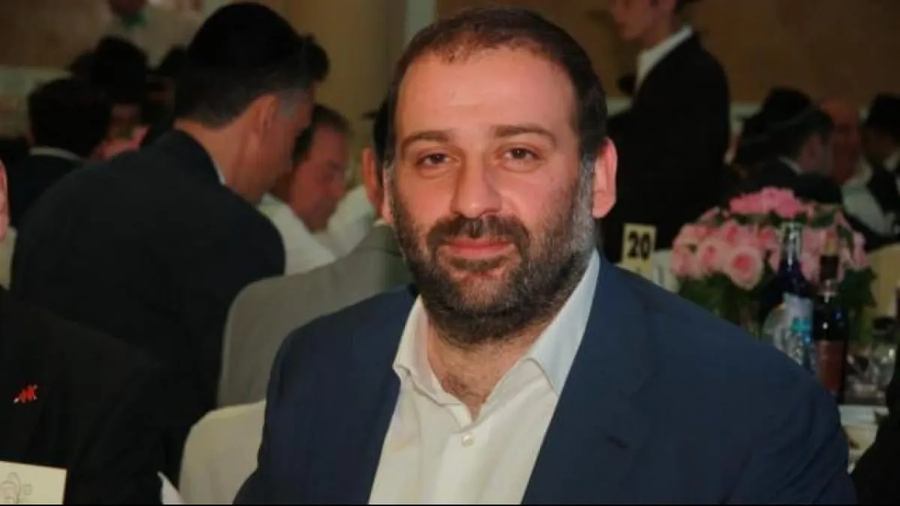
From Kolomoisky's shadow to presidential power
Mindich entered Ukraine's oligarchic world as the youngest partner of Ihor Kolomoisky, managing media assets while the controversial businessman built his empire through PrivatBank and vast holdings. While Kolomoisky amassed billions, Mindich played a supporting role—"bringing branded clothing to Ukraine," handling logistics, "conceptually holding part of Kolomoisky's assets," as business sources described it.
"He was never a player," one influential Ukrainian businessman told Ukrainska Pravda. "He could turn to the president with a request, but nothing more."
But Mindich possessed something more valuable than Kolomoisky's billions: genuine friendship with Volodymyr Zelenskyy.
The two men were co-owners of Kvartal 95, the comedy studio that launched Zelenskyy's entertainment career and eventually his political brand. Their relationship extended far beyond business partnership.
"The president could spend a weekend with him. Grill shashlik. Disconnect. Rest his soul," another influential source told Ukrainska Pravda. A different source called Mindich's role in the power architecture "a hotel, a restaurant, costumes"—maintaining the lifestyle that surrounded the presidency.

The visible signs of intimacy
The friendship became political early. In 2019, as Zelenskyy's presidential campaign reached its final stretch, he began using Mindich's armored Mercedes. During the COVID-19 pandemic in early 2020, journalists documented Mindich visiting the Presidential Office multiple times. When asked, Mindich explained he came "to help organize food deliveries during lockdown."
In January 2021, Zelenskyy celebrated his birthday in Mindich's apartment at 9a Hrushevsky Street—the same apartment where NABU would later install the surveillance devices that captured Operation Midas. Later that year, Mindich attended Presidential Office head Andriy Yermak's 50th birthday celebration at the state residence Synohora in the Carpathians.

Multiple sources in business circles said that Mindich also played a quiet but crucial role in personnel decisions. At the start of Zelenskyy's presidency, Mindich recommended Oleksiy Chernyshov when asked about him. "Tymur said he was a good guy," sources told Ukrainska Pravda.
That endorsement launched Chernyshov's rise from Kyiv regional governor in 2019 to Deputy Prime Minister by 2024—until NABU corruption charges ended his potential path to the premiership.
Wartime transformation: Energy and defense influence
After Russia's February 2022 invasion closed the Presidential District to public view, Mindich's alleged influence expanded dramatically. "He started making a lot of noise when he placed his people in the Cabinet," one business source told Ukrainska Pravda. "He actively invited people to his home. He proposed various schemes. There became a lot of him."
By 2024, sources across political, business, and law enforcement circles linked Mindich to Ukraine's most lucrative wartime sectors:
- Energy: Sources connected him to then-Energy Minister Herman Halushchenko (now Justice Minister), Environment Minister Svitlana Hrynchuk, and Agriculture Minister Vitaliy Koval. Even after mid-2025 Cabinet reshuffles, Hrynchuk moved to Energy and Halushchenko to Justice—maintaining network influence, sources said. His relative Leonid Mindich was detained in summer 2025 for allegedly taking "personal control" of procurement at state energy company Kharkivoblenergo in 2021.
- Defense: Fire Point defense company began receiving billion-hryvnia state contracts in 2024 for long-range drone production. In November 2024 alone, Fire Point received two contracts worth over 7 billion hryvnias ($170 million), according to defense sector sources. The company allegedly received funding from both Ukraine's budget and Western partners. After Mindich's name emerged publicly, management reportedly decided to sell part of Fire Point to a Saudi buyer.
- Banking: Sources said Mindich gained influence over nationalized Sens Bank through contacts with Vasyl Vesely, an unofficial curator. Vesely's family received a stake in Karpatnaftochim, Ukraine's largest petrochemical enterprise, in 2024—the same year assets were unfrozen.

"Right now in Ukraine, big money is made in only a few directions: defense (drones), energy, reconstruction, and call centers," one businessman told Ukrainska Pravda. According to numerous sources, Mindich was present in the first two.
The Russia connection and FBI interest
In September 2025, MP Yaroslav Zheleznyak published an investigation revealing Mindich operated a "mirror" diamond business in both Ukraine and Russia. The investigation found Mindich created a company in Russia after its initial aggression in 2015, continued as co-owner after the full-scale war began, and sold Russian laboratory diamonds abroad in 2022.
Ukraine's Security Service opened a case under Article 111-2—aiding an aggressor state.
Ukrainska Pravda reported in early November that Mindich could also have become the subject of an FBI money-laundering investigation, though US authorities have not confirmed any such probe. The speculation stems from the case of Oleksandr Horbunenko, a Ukrainian businessman wanted by NABU who was detained by US authorities in April 2025 and subsequently released under FBI protection—a move Ukrainian law enforcement sources interpreted as indicating cooperation with American investigators.
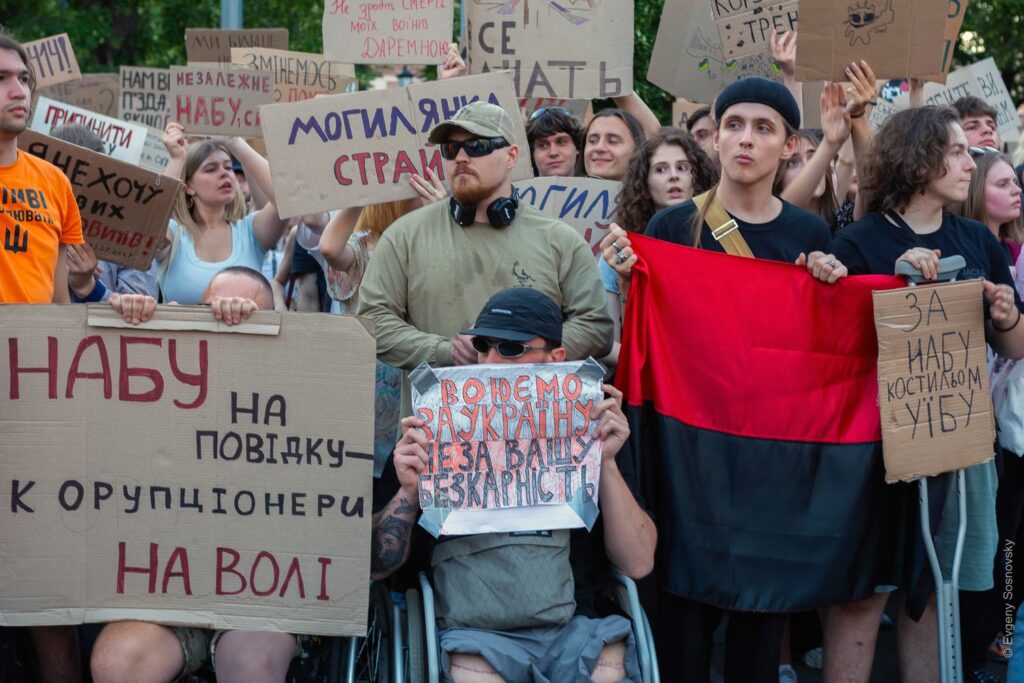
The oligarch who wasn't—until he was
By Zelenskyy's own 2021 anti-oligarch law, Mindich 2.0 qualified as an oligarch: media influence (Kvartal 95 co-owner), alleged control over strategic enterprises (Energoatom), participation in political life (presidential access), and significant assets.
"Tymur is a good organizer. He has direct access to the president. But he never had big money, and he was never a separate subject," one influential member of the informal "Privat" group recalled—the network that effectively ceased existing after Kolomoisky's arrest in late 2023, when the oligarch was charged with money laundering through Privabank, Ukraine's largest bank.
But surviving Kolomoisky's fall may have been Mindich's greatest achievement. As the oligarch's empire collapsed, his junior partner transformed presidential proximity into alleged influence over who gets contracts, who enters ministries, and who controls energy flows in a wartime nation where only a few sectors generate what businessmen call "big money."
NABU wiretaps expose Energoatom kickback scheme during Russian attacks
Over 15 months, NABU surveillance in Mindich's Hrushevsky apartment captured a protection racket at Energoatom—the company generating over half of Ukraine's electricity while Russia systematically struck substations powering nuclear plants.
Contractors faced what suspects called "Shlagbaum" (boom barrier): pay 10-15% kickbacks or watch payments freeze. One company allegedly received a 435 million UAH ($10.4 million) contract in 2025 after agreeing to the higher rate.
On tape, suspects used codenames: "Carlson" for Mindich, "Professor" for Halushchenko, "Rocket" for former energy minister advisor Ihor Myroniuk, "Tenor" for Energoatom security director Dmytro Basov. In June, "Carlson" expressed concern about investigations.
A month later, when discussing protective structures for nuclear facilities, "Rocket" replied: "I'd wait. But, f***, honestly, it's a shame to waste the money."
On 7-8 November, Russia targeted substations powering Khmelnytskyi and Rivne nuclear plants. Two days later, NABU unveiled Operation Midas, documenting how the Ukrainian president's friend ran a scheme to profit off protection contracts, decreasing Ukraine's chances to survive Russia's winter missile barrage with power in their flats—at least some of the time.
- Operation Midas key facts:
- Duration: 15 months of NABU surveillance (2024-2025)
- Evidence: Over 1,000 hours of audio recordings
- Kickback rate: 10-15% of contract values
- Total scheme value: $100 million in alleged kickbacks
- Suspects: 7 people charged, including former Energy Minister Herman Halushchenko
- Method: Contractors paid bribes or faced frozen payments ("Shlagbaum" barrier)
NABU documented how $100 million was processed through a money-laundering office in central Kyiv belonging to the family of Andriy Derkach—a former Ukrainian MP whom the US Treasury sanctioned in 2020 as "an active Russian agent" for election interference, and who now serves as a Russian senator.
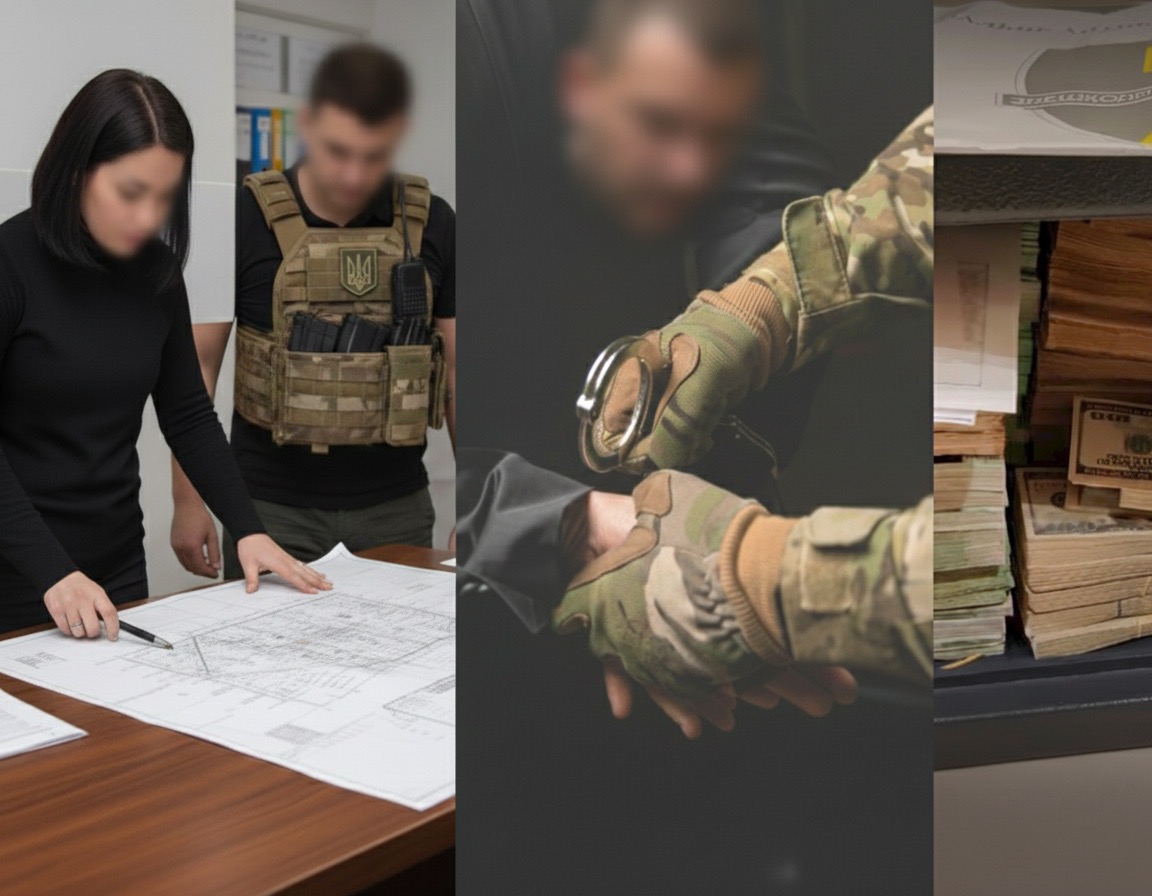
The Mindich tapes: anti-graft recordings expose Zelenskyy associate’s $100M nuclear operator protection racket
Can Ukraine hold the powerful accountable?
NABU's release of the "Mindich tapes" answered any remaining questions about the reasons behind Zelenskyy's crackdown on the anti-corruption agency in July: the anti-graft bureau had reached his long-time friend.
Mindich fled Ukraine hours before NABU came to search his flat—somebody had tipped him off. NABU is studying who exactly and how Mindich could be returned.
President Zelenskyy addressed the investigation in general terms on 10 November, stating that "everyone who has constructed corrupt schemes, must face a clear procedural response." He did not mention Mindich or address the searches at former Justice Minister Halushchenko's residence.
Update, 12 November: Two days later, Zelenskyy went further. In a video address, he called for Justice Minister Halushchenko and Energy Minister Hrynchuk to resign, instructing Prime Minister Yulia Svyrydenko to submit their resignation letters. "If there are accusations, they must be answered," Zelenskyy said.
By morning, Svyrydenko suspended Halushchenko from his post. The Cabinet also voted to recommend sanctions against Mindich and Oleksandr Tsukerman—a move requiring National Security Council approval and presidential signature. Zelenskyy promised to sign the sanctions decree, though he still avoided naming Mindich publicly in his addresses.
Ukraine's anti-corruption infrastructure proved stronger than the president's attempts at gutting it to protect his inner circle this July. But the fabricated justification for that crackdown—claims that NABU was infiltrated by Russian spies—continues damaging the bureau's work.
Security forces arrested two agents during a raid to justify the crackdown on NABU. They are still being prosecuted on accusations anti-corruption activists say are fabricated.
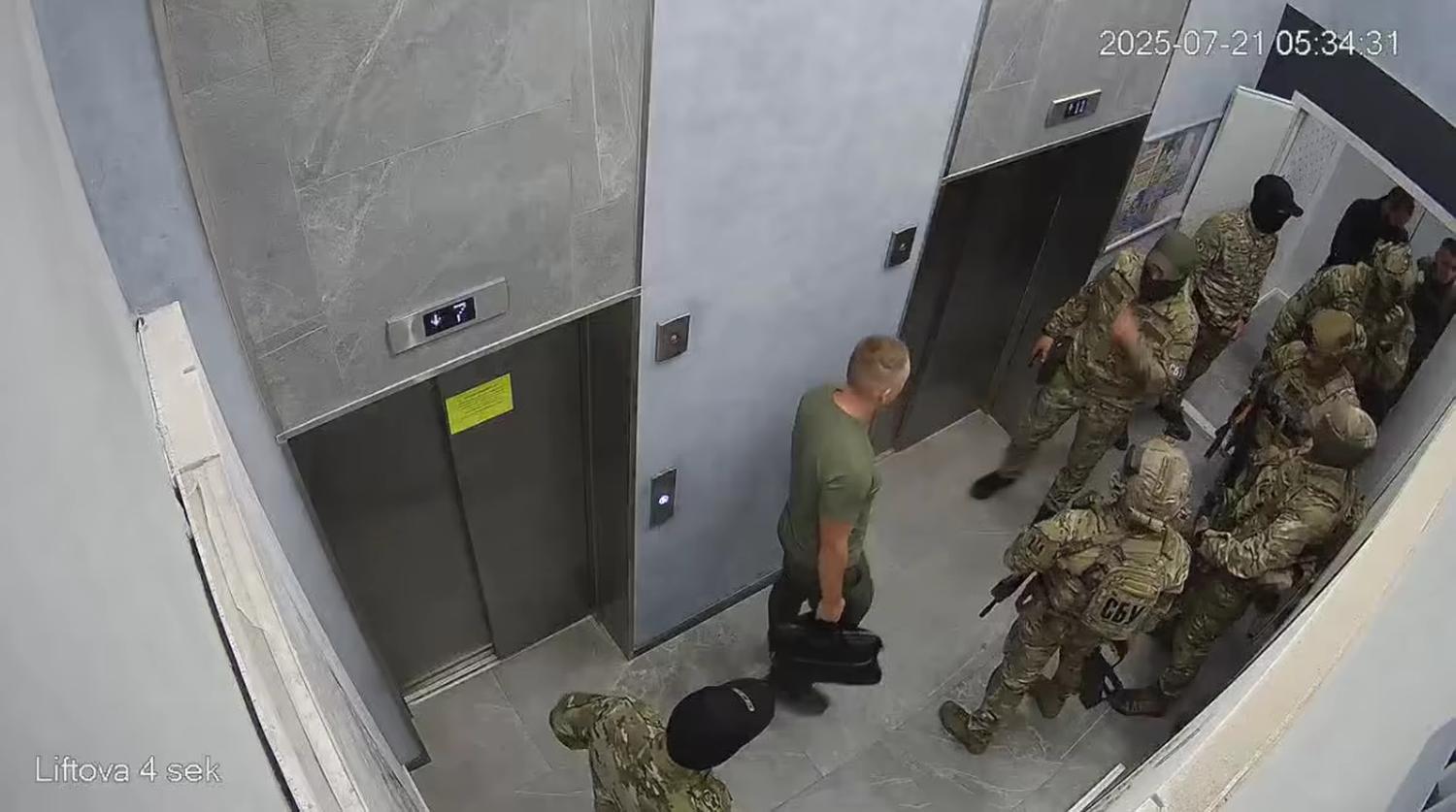
“Russian spies” who justified Ukraine’s anti-corruption crackdown nowhere to be found
Energy expert Oleh Savytskyi wrote that Operation Midas exposes what he calls "GULAG culture"—the Soviet-era mentality where energy sector managers, from mine directors to ministers, treated state assets as personal fiefdoms. The same networks have controlled Ukraine's energy sector through kickbacks and political protection across every presidency since independence.
"In Zelenskyy's case, there was a chance to change everything, and his first government even tried to change course from self-destruction to European integration," Savytskyi wrote. "But the deeply rooted corruption system won again, and the gang not only regained control over Energoatom but also attempted to control all key state energy companies, including Ukrenergo," the operator of Ukraine's entire power grid.
The pattern Savytskyi identifies: Halushchenko, Myroniuk, and others in the Midas investigation belonged to a group that previously controlled Energoatom under earlier administrations. They lost influence when Zelenskyy's first government attempted reforms, then regained control—turning wartime nuclear protection contracts into profit opportunities while Ukrainians endure 12-hour blackouts.
Will Zelenskyy learn from his failed July crackdown? Or will protecting networks trump institutional integrity—again?
NABU delivered accountability the president promised but avoided executing. Western partners watching—with €50 billion in EU assistance already at risk over anti-corruption failures—want to see whether investigations reach conclusions or stall protecting the powerful.
Zelenskyy has instructed that ministers of Justice Herman Halushchenko and Energy Svitlana Hrynchuk be dismissed. Mindich remains at large, reportedly in Israel and Austria. The Tsukerman brothers fled Ukraine.
In July, teenagers with cardboard signs forced a president to back down. In November, NABU proved why they were right. Whether Ukraine passes democracy's ultimate test—holding the powerful accountable—now depends on what happens in courtrooms, not just on streets.
Correction: an earlier version of this article said the Melnychenko tapes toppled the Kuchma administration. In fact, they merely damaged it—Kuchma stayed in power.
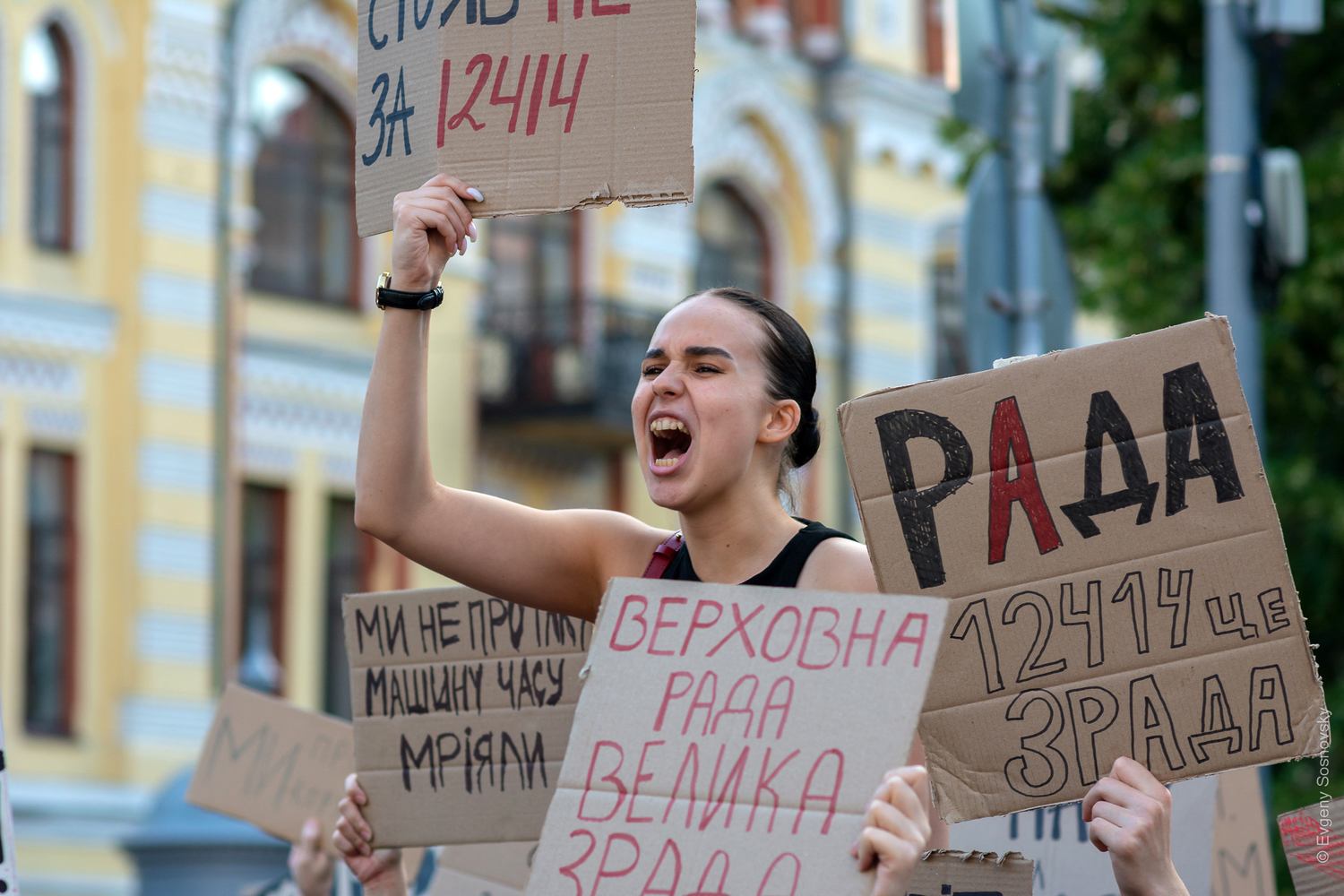
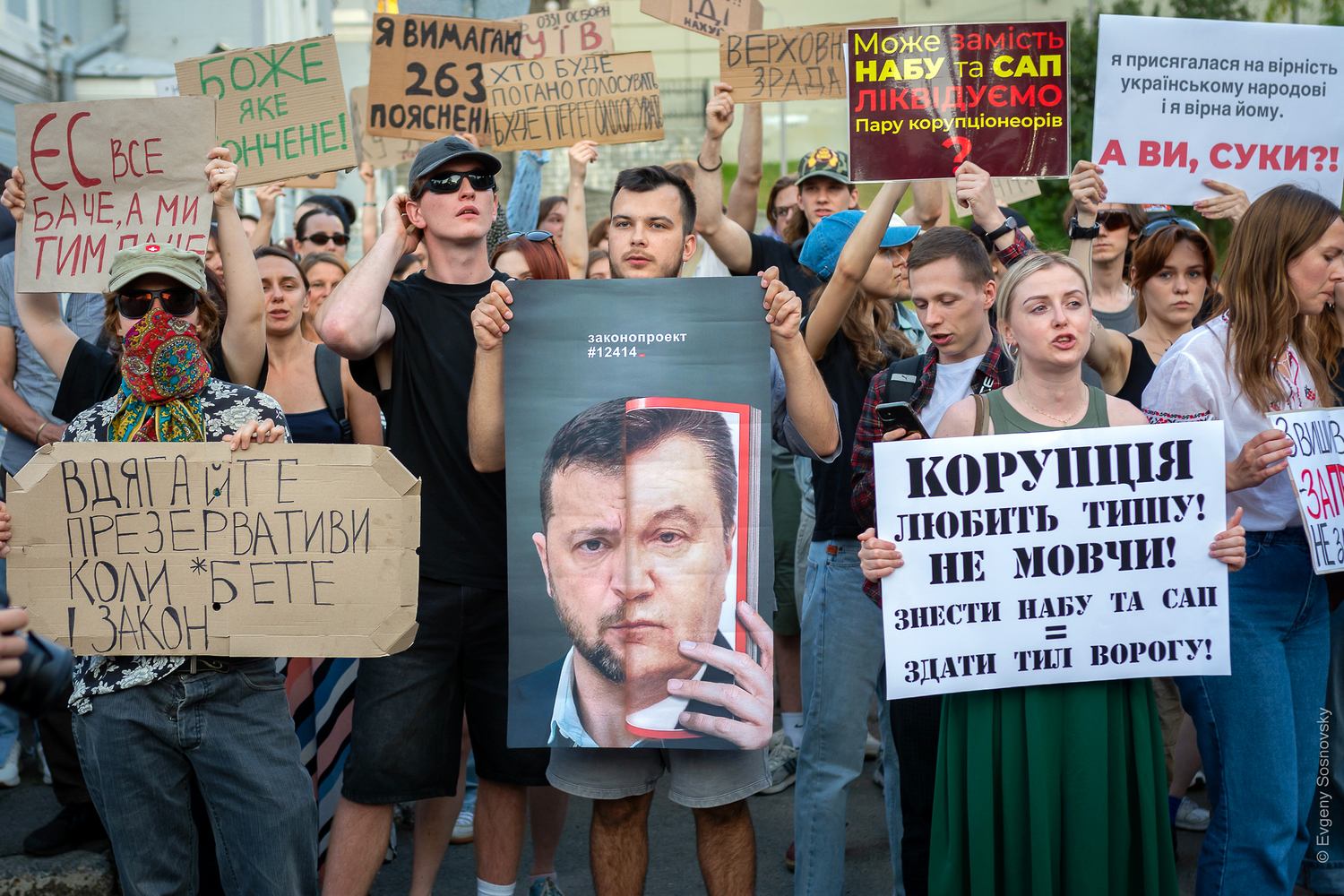
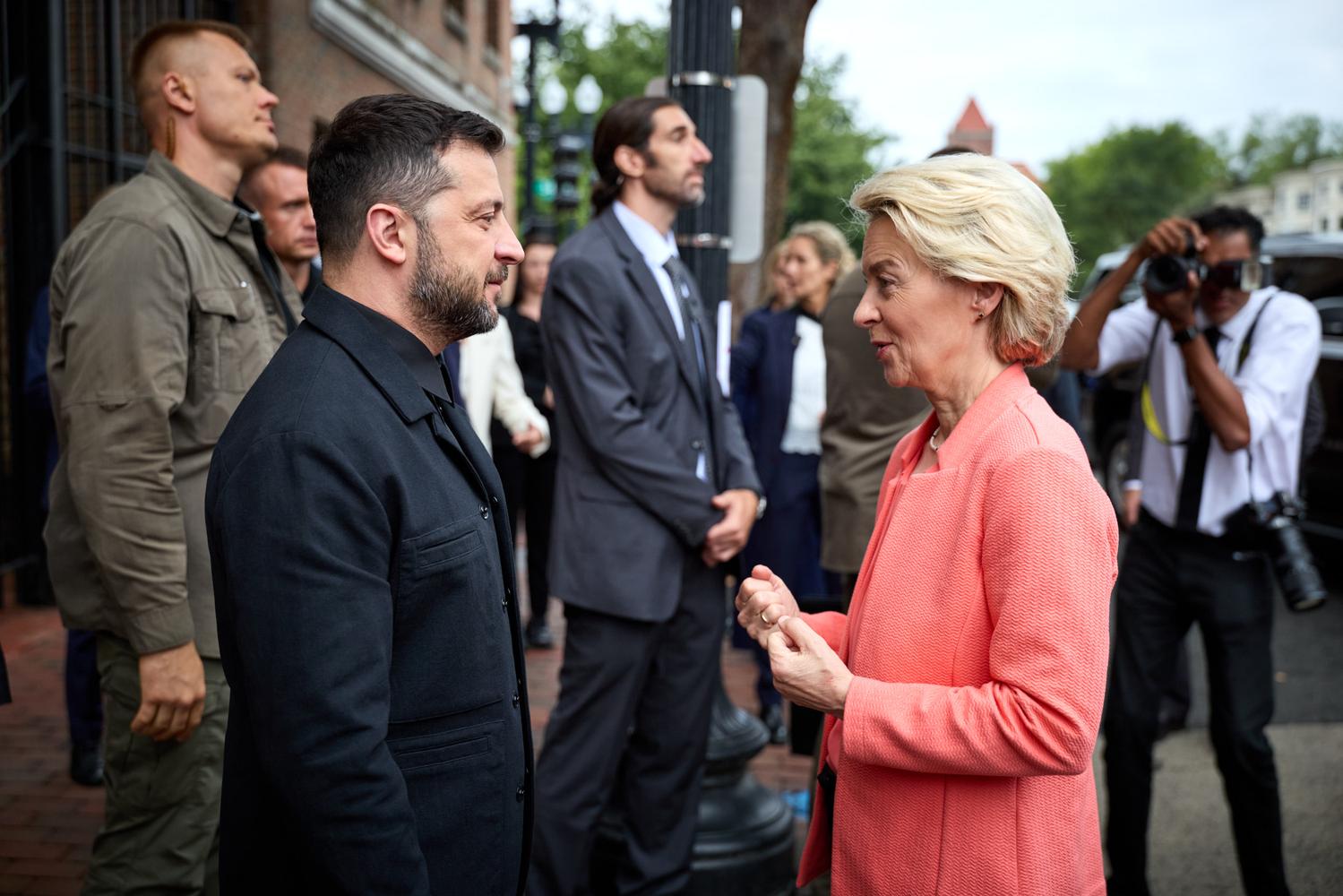
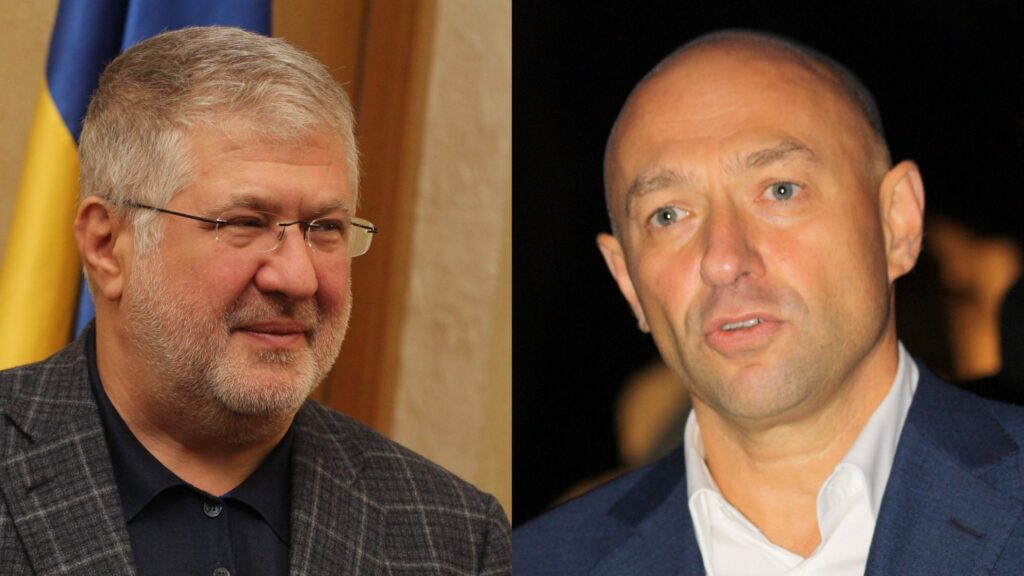
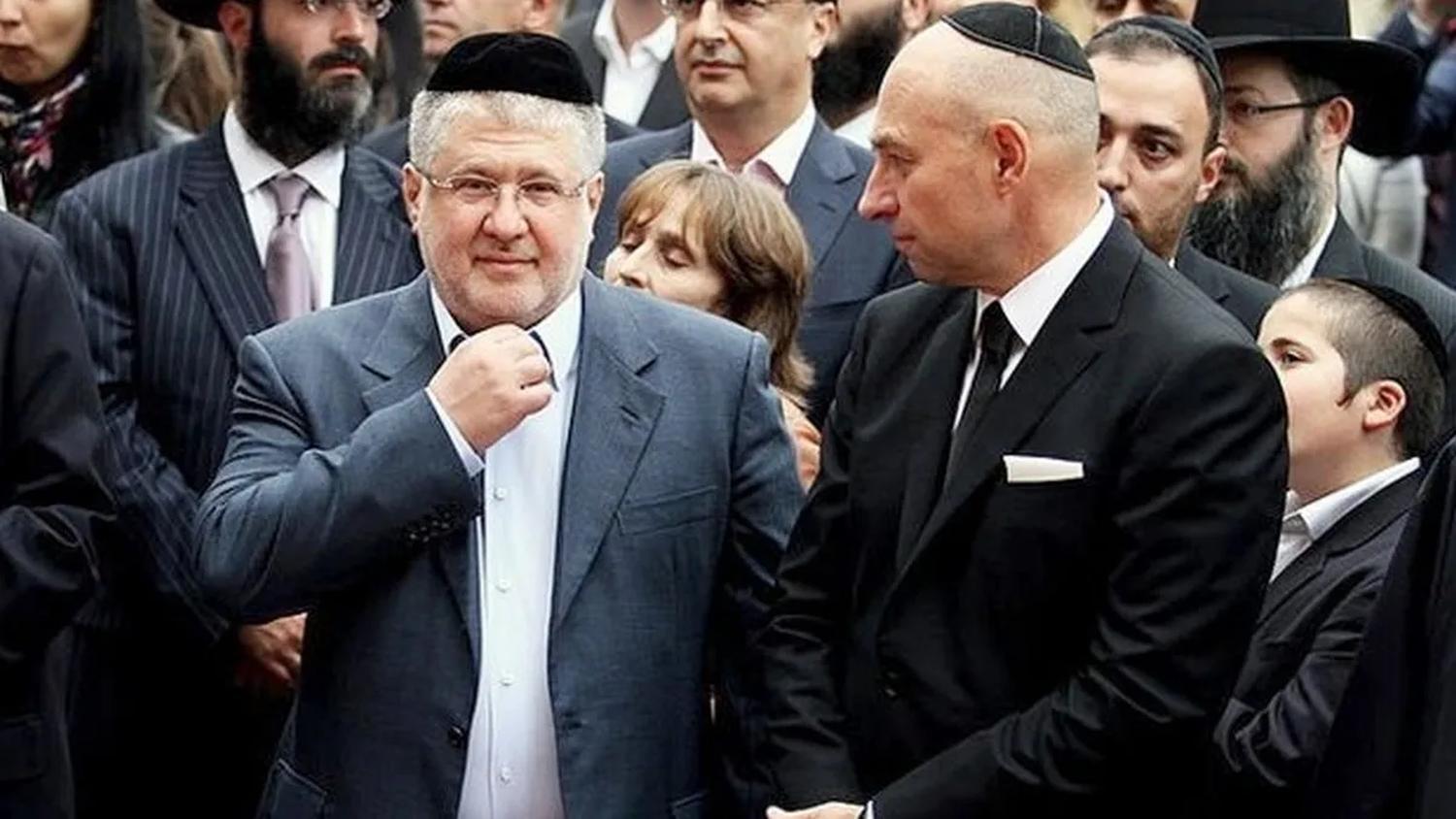


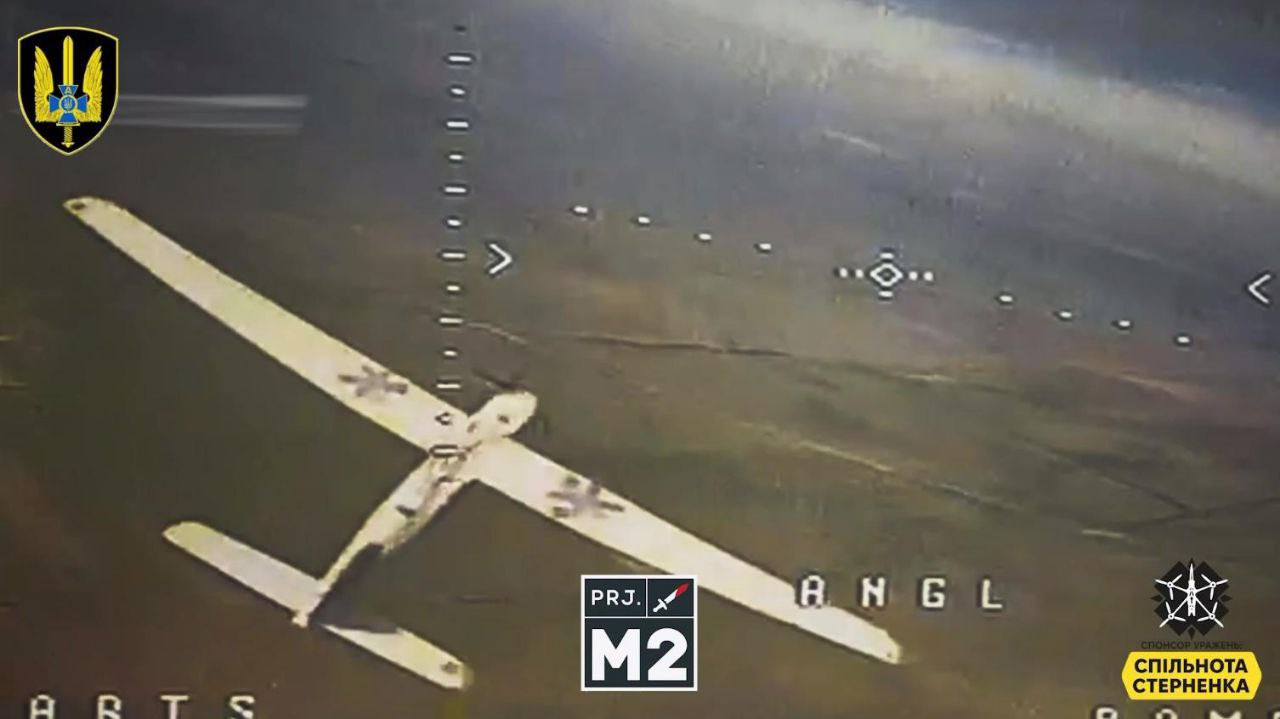









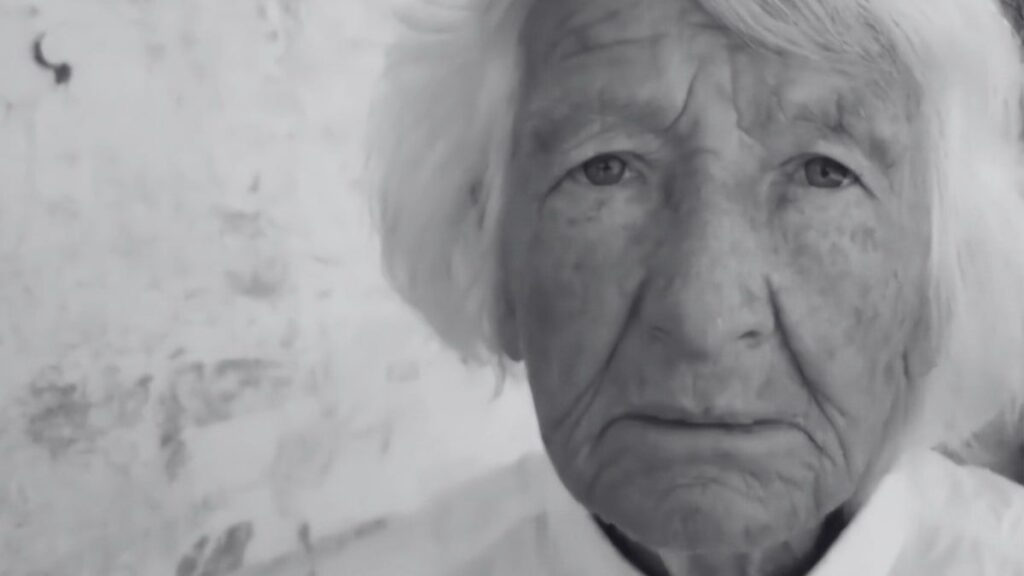

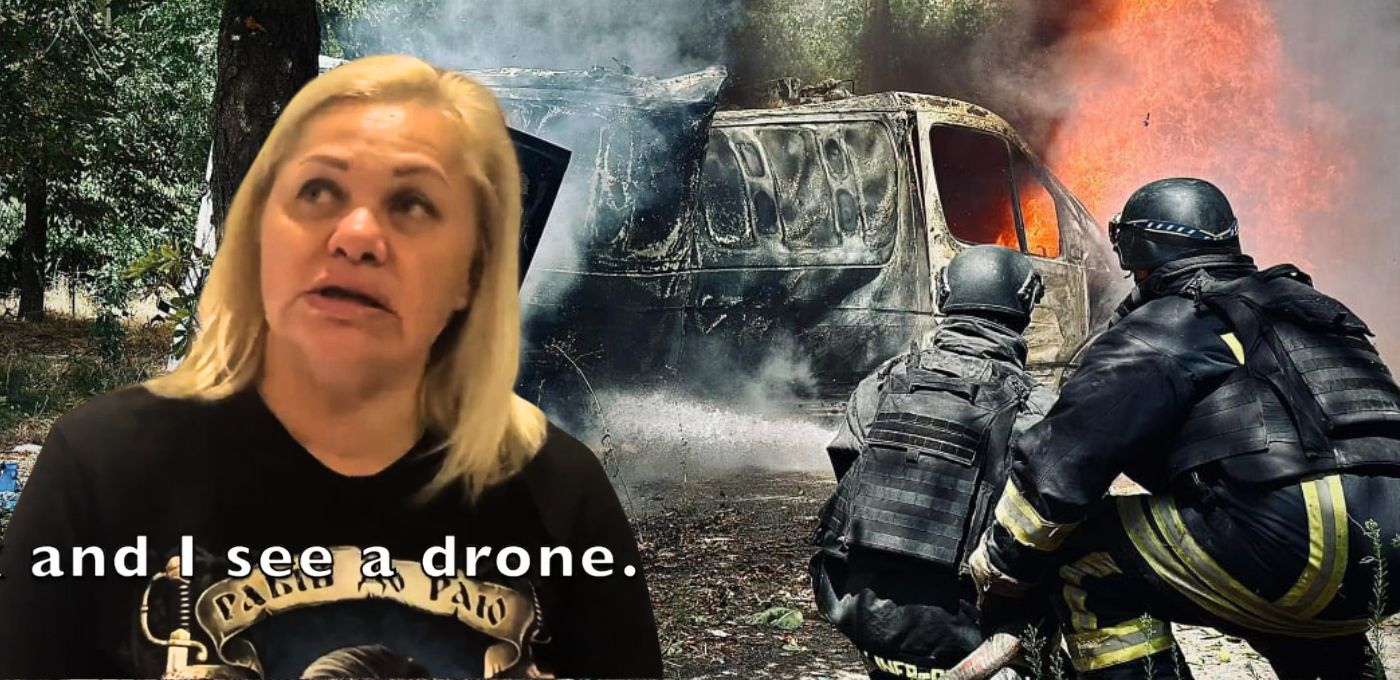

 (@ZarinaZabrisky)
(@ZarinaZabrisky) 

